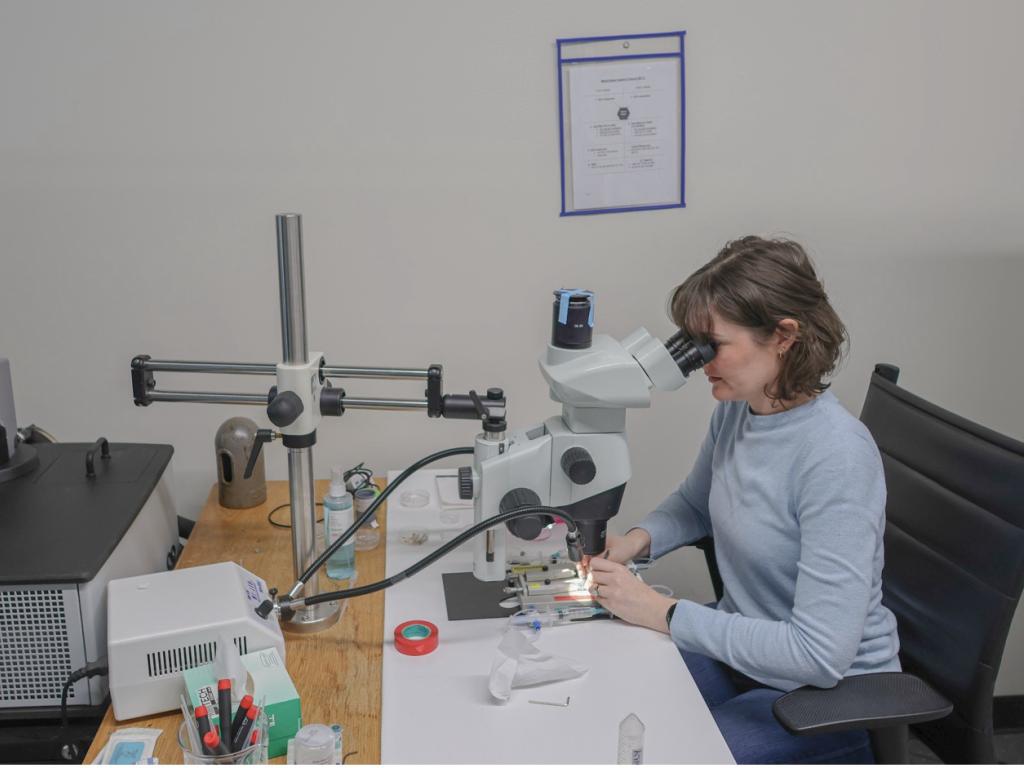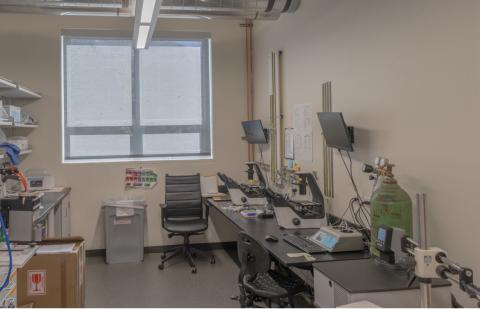
Editor's note: This article was produced by a student participating in the course J477/577: Strategic Science Communication, a collaboration between the School of Journalism and Communication’s Science Communication Minor program and the Research Communications unit in the Office of the Vice President for Research and Innovation.
Alzheimer’s is the most common form of dementia. As of 2023, more than 6.5 million Americans are living with Alzheimer’s, according to the Alzheimer’s Association, a number that is estimated to increase in the coming years as the population ages.
Scientists from all around the world are engaged in research about all stages of Alzheimer's Disease. At the University of Oregon, Dr. Abby Cullen, a postdoctoral researcher at the Aging and Vascular Physiology Lab, has begun research on how zinc deficiency has an impact on the development of Alzheimer’s.
“It's been shown that as you get older and the risk for Alzheimer’s goes up, that’s also the time when zinc deficiency becomes prevalent,” Cullen said.
This is a normal trend that can be accredited to simply using less energy, and thus having different dietary requirements, as a person ages. Older adults may benefit from the same high-protein, zinc-rich diet as younger adults, but often don’t meet their nutritional needs.
In her studies, Cullen is determining if this increase in Alzheimer’s risk is caused partially by a zinc deficiency. To that end, she’s studying the effects of zinc on artery health.

“Important in developmental stages, especially in the brain, zinc has been shown to be associated with the activation of proteins called matrix metalloproteinases, which regulate the extracellular matrix,” Cullen said.
The extracellular matrix forms scaffolding to support the basic structure of blood vessels—Cullen's research examines how zinc’s role in activating the matrix metalloproteinases may affect the stiffness of arterial health.
Arteries play an important role in carrying oxygen and other important nutrients throughout the body. The elasticity of the arteries that carry the blood throughout the body determines how efficiently blood is transported. As blood is pumped through the arteries, the elasticity allows these arteries to dampen large changes in pressure caused by the beating of our hearts.
However, as the body ages, arteries begin to stiffen, losing their elasticity. If the arteries are stiffer, the pulse pressure from the aorta is not dampened, and the delicate vessels, like our capillaries, become damaged. When vessels in the brain are damaged, it leads to a plethora of negative effects. Therefore, a stiffer artery can lead to damage in neurological pathways and could cause brain diseases like Alzheimer’s.
To test the potential connection between zinc and Alzheimer’s, Cullen works with three cohorts of mice, each with different levels of zinc in their diets. The arteries of these mice are extracted and meticulously tied to a glass tube that uses gravity to pressurize them. This simulates how an artery would function in the body, allowing for an accurate reading of arterial function and stiffness.
"The hope is to determine if zinc is one of the contributing factors to Alzheimer’s. I’m all about prevention. It’s about what a person can do right now to reduce their risk of getting Alzheimer’s." —Abby Cullen
Cullens's research underscores the complexity of this disease and the many components involved. There is a reason why many drugs have fallen short in clinical trials. Though no cure for Alzheimer’s currently exists, each study like Cullen’s is important to advance our knowledge of how to slow, treat, and eventually prevent the disease.
